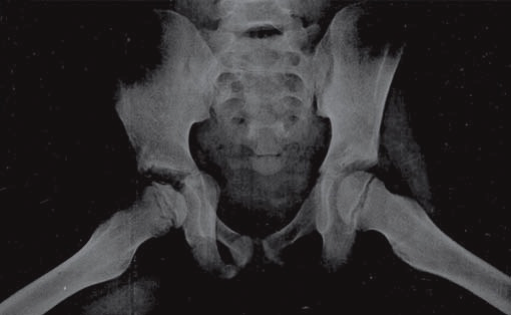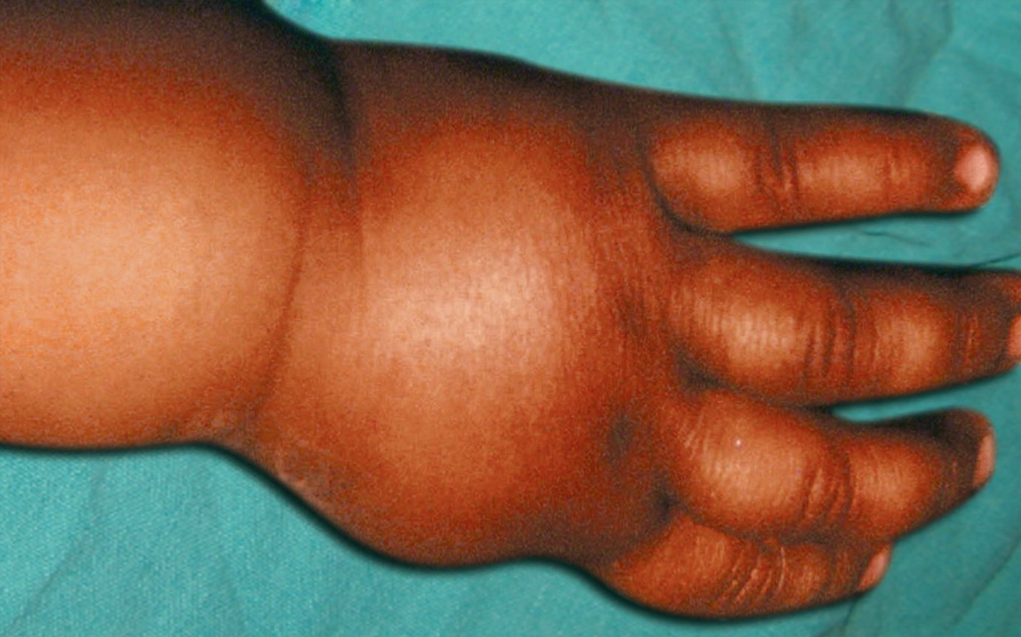-
Hand-Foot Syndrome
-
Obstruction of capillaries of BM causes ischemic necrosis and death of BM, and initiates inflammatory response, increasing intramedullary pressure.
-
Clinically there is swelling over the affected bones with severe pain and tenderness.
-
In younger children, this process is most marked in small bones of hands and feet, causing “Hand-foot syndrome” or dactylitis. Above 5 years the pain distribution reflects articular areas of long bones.
Avascular Necrosis
- Avascular necrosis of bone occurs secondary to vaso-occlusion of nutrient artery. Femoral head, humerus, upper-third of tibia can be affected, but weight bearing makes femoral head necrosis more likely to cause severe disability.

Painful Abdominal Crisis
- Painful abdominal crisis occurs due to localized areas of bowel dysfunction due to vaso-occlusion. There is severe abdominal pain and signs of peritoneal irritation. Persistence of bowel sound differentiates its acute abdomen from requiring surgical exploration. It usually resolves in a period of 3–5 days. The management consists of bowel rest, maintenance of hydration by intravenous fluids. (obstruction of small blood vessels in intestine)
Other Features of Vaso-occlusive Crisis
- Epistaxis is a frequent complaint.
- Retinal infarcts, retinal detachment, vitreous hemorrhage may occur.
- Non-healing chronic leg ulcers.
